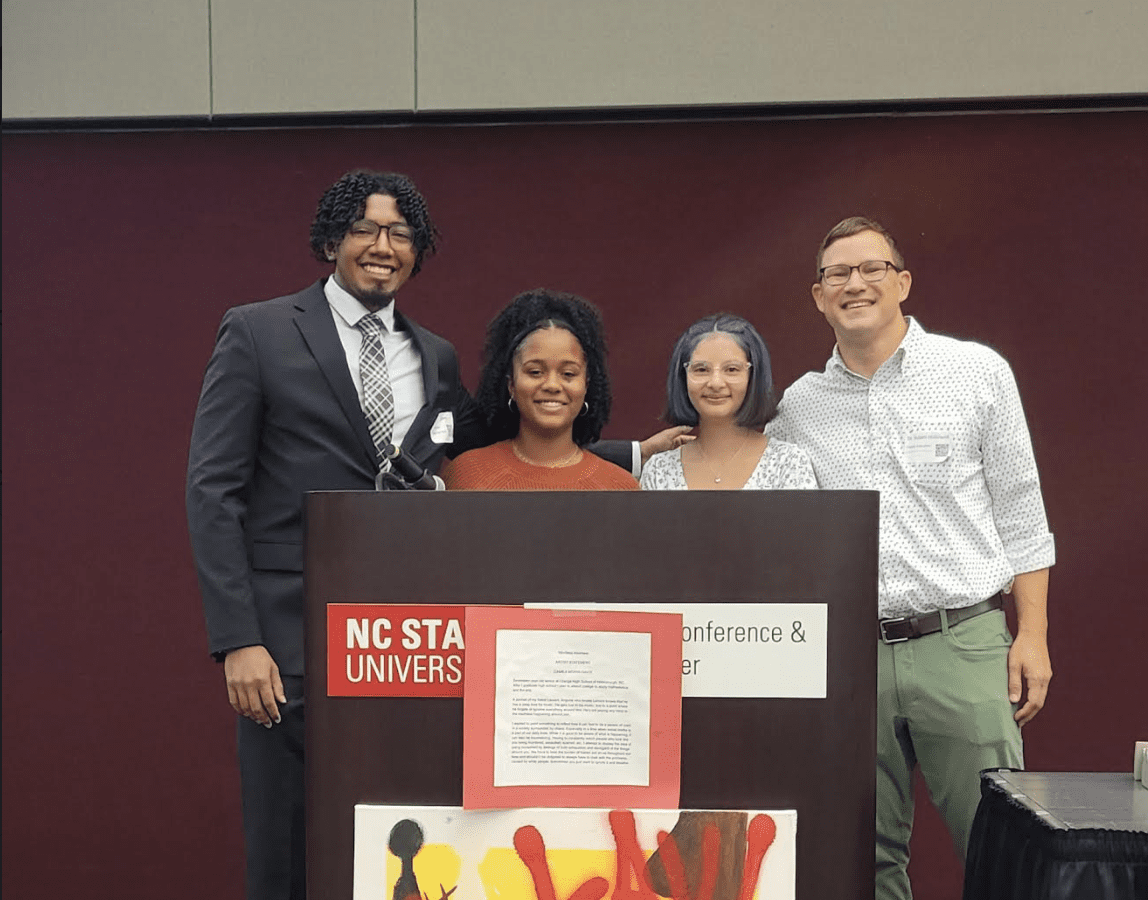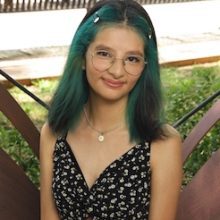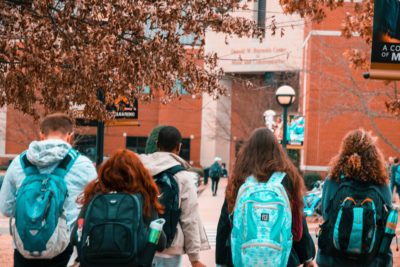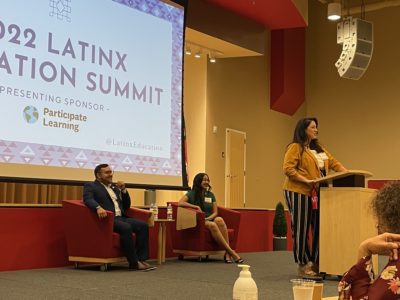
|
|
Editor’s Note: At this year’s Color of Education Summit, two Orange County Schools students took the stage alongside their teacher, Xavier Adams, to give a “talk to teachers.” Orange High School senior Judith Rodriguez and junior Tia Hilber leaned on James Baldwin’s well-known “A Talk To Teachers” and presented student perspectives to the current conversations around how history is taught in schools. These are Rodriguez’s remarks.
I was born and raised in North Carolina. When I first entered the public school system for kindergarten, my mom told me that my name would be a “red flag.” I didn’t think much of this since, you know, I was 5 years old. Lo and behold, my mom was right.
On my first day of kindergarten, my teacher butchered my name, which confused me, since I thought everyone could pronounce Judith and Rodriguez correctly. I guess my teacher was trying to pronounce ‘Judith’ as Mexican as she could once she glanced at my last name. Yes, my name is pronounced differently in Spanish than it is in English. So, in preparation for school starting, my parents started to pronounce my name in the English way at home, so I wouldn’t be confused when I joined school. Points for trying, I guess.
As I grew up and advanced grades, I started to be labeled as a “smart” kid. I know I should be grateful, because I was allowed to be in classes that actually challenged me and helped me develop my brain.
But in reality, it was a double-edged sword. Because of these advanced classes, I was separated from my Latino community. Always being in advanced/honors classes made me isolated, because I would be one of the only kids of color in them. At most, there were three in a class of 20-something. Worst-case scenario, it was only me.
I missed out on a lot because of this. Instead of befriending other Latinos, I was only able to make white friends, because I never saw the other Latinos around the school. If I was in a class where there were a lot of students of color, I would have to leave the classroom and join the other “smart” (white) kids for the gifted program class. It wasn’t until my junior year of high school, when I took Honors Latin American Studies, that I was in a class where the majority of students were Latino. Realizing how rare it was, and how long it had been since this happened, I began to question why this was the case.
As I questioned some more, it led to me starting to question society. It opened my eyes to normalized racism. Why was it normalized? It was so normalized that when teachers wanted to have a debate on whether a sports team should have a certain mascot, I got cut off for “being too political.” I guess I should apologize for wanting Native Americans to be treated as humans and not mascots. To add to the normalization, tell me why a white girl at my school can get away with calling me and my community “beaners,” but when we refer to each other as such, it makes white people with authority feel uncomfortable. The white girl from my school ended up getting away with it because she is 25% Mexican, so it’s fine when she says it despite the fact that she never claimed to be Mexican. What makes it worse is that she was given a leadership position in the National Spanish Honors Society — a club meant for those who are proficient in Spanish but that is dominated by the white students who just want it to look good on a college application. I get it though. I live in the South. I should get used to my school being predominantly white. I should get used to driving past a Confederate flag every day on my way to and from school.
As someone who hopes to become a teacher someday, I have learned from my own teachers’ mistakes. I know not to be afraid to talk about race. I know that everyone is not going to be happy-go-lucky all the time. I also know that not everyone has had the same educational opportunities. I can be the one to give them the information, so that they don’t have to learn the truth behind the U.S history through social media like I did. I can offer them someone that they can trust and relate to. I can be a safe space for them. Most importantly, I can advocate for them. After all, that was something I really wanted to have in school: someone that would hear me out and make sure my voice is heard, someone who could understand me. That would have made my 13 years of public education a whole lot better.
I have the power to question society, but I can’t fix it alone. So now I ask you teachers to please help us out. At this point, the bar is on the floor for the expectations we have for y’all. Just attempting to stay open-minded could go a long way for your students of color. This doesn’t mean that only attempting is enough. We students of color deserve more than just a simple attempt. Having an open mind is just step one.
Listening to your students of color matters — i.e. paying attention to them when they are talking so they feel seen, answering their questions so they know they are being heard, asking them how their day was so they know you care. You can add people of color that are related to the subject you teach, because we know it is possible. In other words, try to be as inclusive as you can be. Representation is important to all of us. Don’t be afraid to talk about race, because in the world we are living in, ignoring it does more harm.
And lastly, don’t overlook or underestimate us. I have the power to question society, and I’m gonna do everything I can to fix it. And with your help, that possibility might just happen.





